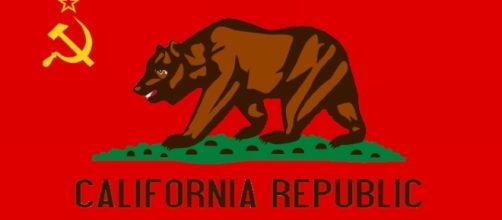The proposition that supports the secession of California from the Union will likely be on the 2018 ballot. Moreover, a third of the electorate in the state support it's leaving the United States and becoming a republic. With that in mind, one of the leaders of the so-called Calexit movement, Shankar Singam, appeared on Tucker Carlson’s Fox News program and opened his mind about the issues surrounding California’s leading the United States.
What about American military bases in California?
The United States military maintains quite a few bases in California, such as Camp Pendleton and Vandenberg Air Force Base.
It looks like that the coming Republic of California will not try to take them by force, like the Confederates firing on Fort Sumter. Instead, the United States will be allowed to keep its bases in exchange for a small fee to the California government. What is good enough for Germany, South Korea, and Japan will be good enough for the Californian Republic.
The main export of the new nation will be its middle class
Carlson offered some sobering facts about the stagnating economy of the would-be new country. The income gap between the very rich, mainly tech billionaires and Hollywood moguls, and the very poor is widening. Squeezed by high taxes and impossible housing prices, the middle class is busily exiting the state.
Singam is quite cool with this because this creates more room for new immigrants. In effect, the state would become a developing world country with a small, incredibly rich class and a mass of the desperately poor. The middle class would be all but nonexistent.
What would be the reaction of the United States to Calexit?
Carlson mentioned that an attempt by California to leave the Union would likely result in a war. The example of 1861 is certainly relevant. Moreover, while the coast is undoubtedly left leaning, the less populous interior tends to be more conservative and would likely be swiftly occupied by federal troops. The example of West Virginia applies to what would, in effect, the creation of East California.
The rest of the coast would be cut off from sources of water, food, fuel, and electricity. The ability of a hypothetical republic to resist this move would be quite limited. It would not be necessary to march on San Francisco and Los Angeles to end the rebellion in short order.
The bottom line
Carlson, as he tends to do, has exposed some of the fraud surrounding the Calexit movement. It is clear that the modern version of the Confederates have not quite thought through the implications of what they are planning to do.


